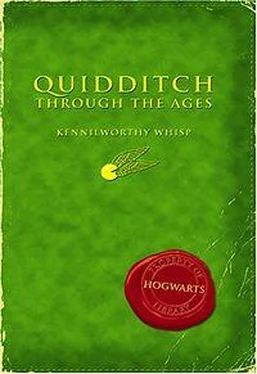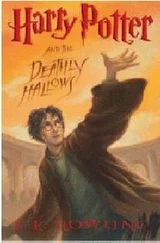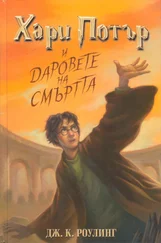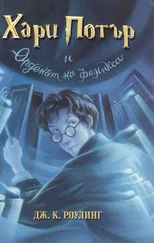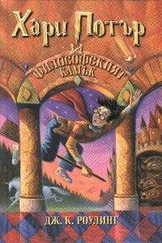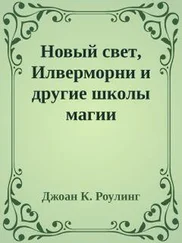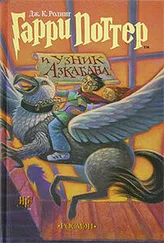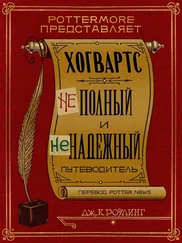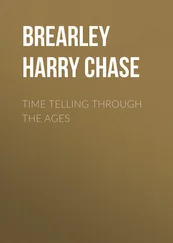Джоан Роулинг - Quidditch Through the Ages
Здесь есть возможность читать онлайн «Джоан Роулинг - Quidditch Through the Ages» — ознакомительный отрывок электронной книги совершенно бесплатно, а после прочтения отрывка купить полную версию. В некоторых случаях можно слушать аудио, скачать через торрент в формате fb2 и присутствует краткое содержание. Жанр: Фэнтези, на английском языке. Описание произведения, (предисловие) а так же отзывы посетителей доступны на портале библиотеки ЛибКат.
- Название:Quidditch Through the Ages
- Автор:
- Жанр:
- Год:неизвестен
- ISBN:нет данных
- Рейтинг книги:5 / 5. Голосов: 1
-
Избранное:Добавить в избранное
- Отзывы:
-
Ваша оценка:
- 100
- 1
- 2
- 3
- 4
- 5
Quidditch Through the Ages: краткое содержание, описание и аннотация
Предлагаем к чтению аннотацию, описание, краткое содержание или предисловие (зависит от того, что написал сам автор книги «Quidditch Through the Ages»). Если вы не нашли необходимую информацию о книге — напишите в комментариях, мы постараемся отыскать её.
Quidditch Through the Ages — читать онлайн ознакомительный отрывок
Ниже представлен текст книги, разбитый по страницам. Система сохранения места последней прочитанной страницы, позволяет с удобством читать онлайн бесплатно книгу «Quidditch Through the Ages», без необходимости каждый раз заново искать на чём Вы остановились. Поставьте закладку, и сможете в любой момент перейти на страницу, на которой закончили чтение.
Интервал:
Закладка:
Lead was eventually discovered to be too soft for the purpose of Bludger manufacture (any indentation left on a Bludger will affect its ability to fly straight). Nowadays all Bludgers are made of iron They are ten inches in diameter.
Bludgers are bewitched to chase players indiscriminately. If left to their own devices, they will attack the player closest to them, hence the Beaters' task is to knock the Bludgers as far away from their own team as possible.
The Golden Snitch is walnut‑sized, as was the Golden Snidget. It is bewitched to evade capture as long as possible. There is a tale that a Golden Snitch evaded capture for six months on Bodmin Moor in 1884, both teams finally giving up in disgust at their Seekers' poor performances. Cornish wizards familiar with the area insist to this day that the Snitch is still living wild on the moor, though I have not been able to confirm this story.
Players
The position of Keeper has certainly existed since the thirteenth century (see Chapter Four), though the role has changed since that time.
According to Zacharias Mumps, the Keeper
should be first to reach the goal baskets for it is his job to prevent the Quaffle entering therein. The Keeper should beware of straying too far towards the other end of the pitch, in case his baskets come under threat in his absence. However, a fast Keeper may be able to score a goal and then return to his baskets in time to prevent the other team equalising. It is a matter for the individual conscience of the Keeper.
It is clear from this that in Mumps's day the Keepers performed like Chasers with extra responsibilities. They were allowed to move all over the pitch and to score goals.
By the time Quintius Umfraville wrote The Noble Sport of Warlocks in 1620, however, the Keeper's job had been simplified. The scoring areas had now been added to the pitch and the Keepers were advised to remain within them, guarding their goal baskets, though Keepers may fly out of this area in an attempt to intimidate opposing Chasers or head them off early.
The duties of the Beaters have changed little through the centuries and it is likely that Beaters have existed ever since the introduction of the Bludgers. Their first duty is to guard their team members from the Bludgers, which they do with the aid of bats (once clubs, see Goodwin Kneen's letter in Chapter Three). Beaters have never been goal‑scorers, nor is there any indication that they have handled the Quaffle.
Beaters need a good deal of physical strength to repel the Bludgers. This is therefore the position that, more than any other, has tended to be taken by wizards rather than witches. Beaters also need to have an excellent sense of balance, as it is sometimes necessary for them to take both hands from their brooms for a double‑handed assault on a Bludger.
Chaser is the oldest position in Quidditch, for the game once consisted wholly of goal‑scoring. The Chasers throw the Quaffle to each other and score ten points for every time they get it through one of the goal hoops.
The only significant change in Chasing came about in 1884, one year after the substitution of goal hoops for goal baskets. A new rule was introduced which stated that only the Chaser carrying the Quaffle could enter the scoring area. If more than one Chaser entered, the goal would be disallowed. The rule was designed to outlaw 'stooging' (see 'Fouls' below), a move by which two Chasers would enter the scoring area and ram the Keeper aside, leaving a goal hoop clear for the third Chaser. Reaction to this new rule was reported in the Daily Prophet of the time.
Our Chasers
Aren't Cheating!
That was the stunned reaction of Quidditch fans across Britain last night when the so‑called 'Stooging Penalty' was announced by the Department of Magical Games and Sports last night.
'Instances of Stooging have been on the increase, said a harassed‑looking Departmental representative last night. 'We feel that this new rule will eliminate the severe Keeper injuries we have been seeing only too often. From now on, one Chaser will attempt to beat the Keeper, as opposed to three Chasers beating the Keeper up. Everything will be much cleaner and fairer'.
At this point the Departmental representative was forced to retreat as the angry crowd started to bombard him with Quaffles Wizards from the Department of Magical Law Enforcement arrived to disperse the crowd, who were threatening to Stooge the Minister for Magic himself.
One freckle‑faced six‑year‑old left the hall in tears.
'I loved Stooging, he sobbed to the Daily Prophet. 'Me and me dad like watching them Keepers flattened. I don't want to go to Quidditch no more'
Daily Prophet 22 June 1884
Usually the lightest and fastest fliers, Seekers need both a sharp eye and the ability to fly one‑ or no‑handed. Given their immense importance in the overall outcome of the match, for the capture of the Snitch so often snatches victory from the jaws of defeat, Seekers are most likely to be fouled by members of the opposition. Indeed, while there is considerable glamour attached to the position of Seeker, for they are traditionally the best fliers on the pitch, they are usually the players who receive the worst injuries. 'Take out the Seeker' is the first rule in Brutus Scrimgeour's The Beaters' Bible .
Rules
The following rules were set down by the Department of Magical Games and Sports upon its formation in 1750:
1. Though there is no limit imposed on the height to which a player may rise during the game, he or she must not stray over the boundary lines of the pitch. Should a player fly over the boundary, his or her team must surrender the Quaffle to the opposing team.
2. The Captain of a team may call for 'time out' by signalling to the referee. This is the only time players' feet are allowed to touch the ground during a match. Time out may be extended to a two‑hour period if a game has lasted more than twelve hours. Failure to return to the pitch after two hours leads to the team's disqualification.
3. The referee may award penalties against a team. The Chaser taking the penalty will fly from the central circle towards the scoring area. All players other than the opposing Keeper must keep well back while the penalty is taken.
4. The Quaffle may be taken from another player's grasp but under no circumstances must one player seize hold of any part of another player's anatomy.
5. In the case of injury, no substitution of players will take place. The team will play on without the injured player.
6. Wands may be taken on to the pitch. [2] The right to carry a wand at all times was established by the International Confederation of Wizards in 1692, when Muggle persecution was at its height and the wizards were planning their retreat into hiding.
but must under no circumstances whatsoever be used against opposing team members, any opposing team member's broom, the referee, any of the balls or any member of the crowd.
7. A game of Quidditch ends only when the Golden Snitch has been caught, or by mutual consent of the two team Captains.
Rules are of course 'made to be broken'. Seven hundred Quidditch fouls are listed in the Department of Magical Games and Sports records, and all of them are known to have occurred during the final of the first ever World Cup in 1473. The full list of these fouls, however, has never been made available to the wizarding public. It is the Department's view that witches and wizards who see the list 'might get ideas'.
Читать дальшеИнтервал:
Закладка:
Похожие книги на «Quidditch Through the Ages»
Представляем Вашему вниманию похожие книги на «Quidditch Through the Ages» списком для выбора. Мы отобрали схожую по названию и смыслу литературу в надежде предоставить читателям больше вариантов отыскать новые, интересные, ещё непрочитанные произведения.
Обсуждение, отзывы о книге «Quidditch Through the Ages» и просто собственные мнения читателей. Оставьте ваши комментарии, напишите, что Вы думаете о произведении, его смысле или главных героях. Укажите что конкретно понравилось, а что нет, и почему Вы так считаете.
